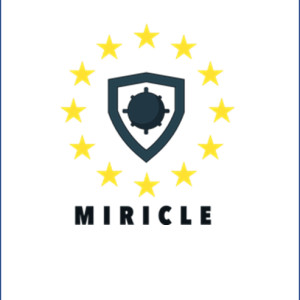 Contact us
Contact us
Mobile menu not yet fully implemented
Find out what's happening in the area of Horizon Europe, Digital Europe and Horizon 2020
Starts in 1 week from now
LocationBrussels and webstreaming
The conference will focus on the key interfaces between the environment, humans, and technology within and beyond the Earth’s planetary boundaries and discuss what frontier research – with a focus on projects funded by the ERC - can offer to address these challenges. The boundaries themselves may be spatial, ecological, biological, physical, geopolitical or mental.
Keynote speakers, thematic sessions and the final round table will address questions such as:
The complete programme, speaker bios and registration form are available in the announcement on the ERC website.
Programme in brief
08.30 - 09.00 Reception and registration
09.00 - 09:30 Welcome
09.30 - 10:30 Keynotes and Q&A
10.30 - 10.45 Coffee break
10.45 - 12.15 Session 1: ENVIRONMENT within planet Earth and beyond
12.15 - 13.15 Lunch break
13.15 - 14.45 Session 2: HUMANS and our perceptions and impact on Earth and beyond
14.45 - 15.00 Coffee break
15.00 - 16.30 Session 3: TECHNOLOGY to help discoveries and to mitigate adverse impacts
16.30 - 17.45 Round table
17.45 - 18.00 Concluding remarks
We offer news and event updates, covering all domains and topics of Horizon Europe, Digital Europe & EDF (and occasionally, for ongoing projects, Horizon 2020).
Stay informed about what matters to you.
By signing up, you can opt in for e-mail notifications and get access to
a personalised dashboard that groups all news updates and event announcements in your domain(s).
Only for stakeholders located in Flanders
Health Culture and society Digital, Industry & Space Climate, Energy, Mobility Defence
Security Digital, Industry & Space AI, data & cloud Cybersecurity Defence
Security Cybersecurity Defence EDF NATO-EDA

The Miricle project, ‘Mine Risk Clearance for Europe’, obtained funding under the European Defence Industrial Development programme call ‘Underwater control contributing to resilience at sea’. The main objective of the project was to achieve a European and sovereign capacity in future mine warfare and create a path for the next generation ‘made in Europe’ countermeasure solutions. In order to realise this objective, Miricle addressed various stages: studies, design, prototyping and testing. These stages inter alia included the successful testing of an XL Unmanned Underwater Vehicle, a protototyped mine disposal system and multiple innovative systems to detect buried mines. Flanders Marine Institute (VLIZ), was one of the five Belgian partners in the consortium. Within the project, VLIZ was able to forward its research on the acoustic imaging of the seabed to spatially map and visualize buried structures and objects - in this case buried mines - in the highest possible detail. VLIZ also led the work on ‘Port and Offshore Testing’, building on the expertise of the institute in the field of marine operations and technology.